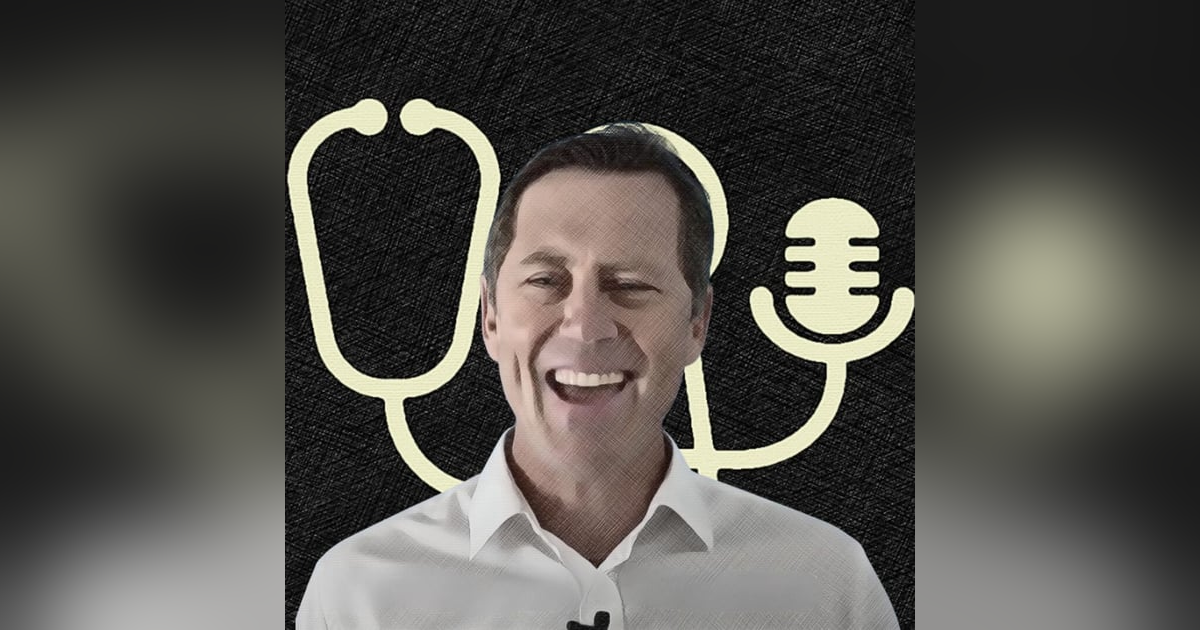#111: Navigating the Pendulum: Adapting to Evolving Veterinary Landscapes. With Dr Sam Bowden.

This episode explores the evolving landscape of the veterinary profession, highlighting the challenges and opportunities for veterinarians, business owners, and recent graduates. Key topics include adapting to cyclical changes in the profession, managing client expectations, and preparing students and early-career vets for real-world challenges. The conversation emphasises practical advice, such as embracing the inevitability of mistakes, fostering resilience, and balancing technical skills with business acumen. Insights into modern veterinary business strategies are shared, including leveraging technology, creating efficient systems, and adapting to shifts in client behaviour and economic conditions. The discussion provides actionable strategies for thriving in veterinary medicine, whether as a clinician, leader, or entrepreneur.
The last time we had Sam Bowden on the podcast, all everyone in the veterinary profession could think about was: 'too much work, not enough workers!' But 2023 saw some changes. The deluge of work turned into a more reasonable stream, veterinary companies are looking twice at their bloated wage bills, and clinics are finally filling those vacancies. It’s a different landscape to be sure, and Sam Bowden is just the man to help us unpack and strategise, whether you’re freshly graduated and about to enter the job market, or a clinic owner who has to start working on attracting and keeping good clients.
Grab your limited seat at Sam’s members only AMG Marketing Mastery Event.
Book a call with Sam about joining the Accelerate Mastermind Group.
Dr Sam Bowden, with 15 years of veterinary practice experience and a track record of owning and expanding two practices, has spent the last 12 years assisting practice owners in achieving better work-life balance, profitability, and overall well-being. He's the founder of United Vets Group, The Ultimate Veterinary Practice, Complete Vet Systems, More Vet Clients Websites, Accelerate Practice Academy, Accelerate Mastermind Group, Vet Business Manager Program, The Dental Academy and also the author of The Abundant Practice. Sam’s teaching focusses heavily on mindset combined with practical strategies to allow practice owners and teams to reach their full potential.
In this episode, we explore the changes in the veterinary profession in 2024 compared to a year ago, including what Sam calls the 'profitless boom.' Sam shares data with us on what our clients value, and some practical ways that we can deliver it in way that is financially and emotionally sustainable. We dig into how the veterinary job market is different now compared to a year ago, and how it might change over the next year or two as we discuss the question: have we become entitled?!
Topic list:
06:30 Changes in the vet profession.
07:54 Sam's advice for vet students.
23:50 Do we still have too many clients and not enough vets?
27:11 Clinic retail sales have gone down - what's the impact?
31:38 Do cheap retailers erode trust of veterinary clinics?
36:13 Are wages going to stay up?
37:43 The shift towards service orientation in veterinary practice.
39:09 Better service and changing the model of service increases price elasticity.
41:18 The role of pet insurance and wellness plans.
44:09 Why you should have a business mindset and a positive mindset in vet practice.
55:16 Sam's thoughts on social media as tool for business and as a vet.
Join our community of Vet Vault Nerds to lift your clinical game and get your groove back with our up-to-date, easy-to-consume clinical episodes at vvn.supercast.com.
Get help with your cases in our Specialist Support Space.
Visit thevetvault.com for show notes and resources related to this episode.
Connect with us through our online Vet Vault Network for episode highlights, clinical resources, discussions, questions and support.
Subscribe to our weekly newsletter here for Hubert's favourite clinical and non-clinical learnings from the week.
Preparing Veterinary Students for Real-World Challenges
- Managing Expectations: Students often enter the profession with high expectations of themselves, leading to anxiety and disappointment.
- It is important to emphasise that mistakes are inevitable, particularly in the early years of their careers, and should be viewed as learning opportunities rather than failures.
- Shifting the focus from perfection to progression helps create a healthier mindset and fosters resilience.
- Building Confidence: Encourage students to step outside their comfort zones and take on challenges, even if they feel unprepared.
- Practical experience in a supportive environment where they can make mistakes and learn from them is crucial for developing competence and confidence.
- Mentorship and coaching play a vital role in guiding students through these early experiences and helping them navigate challenges.
- Financial Realities: Openly discuss the financial aspects of veterinary practice, including salary expectations and the challenges of maintaining profitability in a changing economic environment.
- Understanding the business side of veterinary practice is becoming increasingly important for young vets.
- Encourage students to think like business owners, considering how they can contribute to the practice's success and negotiate their value accordingly.
Leadership and Growth in Veterinary Practices
- Implementing pet insurance and wellness plans to provide clients with financial options and create a more predictable revenue stream.
- Focusing on client service excellence to enhance price elasticity and client loyalty.
- Running a "leaner" and more efficient practice by streamlining processes and optimising resource allocation.
- Embracing change and adapting to evolving market dynamics.
- Seeking opportunities in challenging times.
- Continuously learning and improving processes and services.






